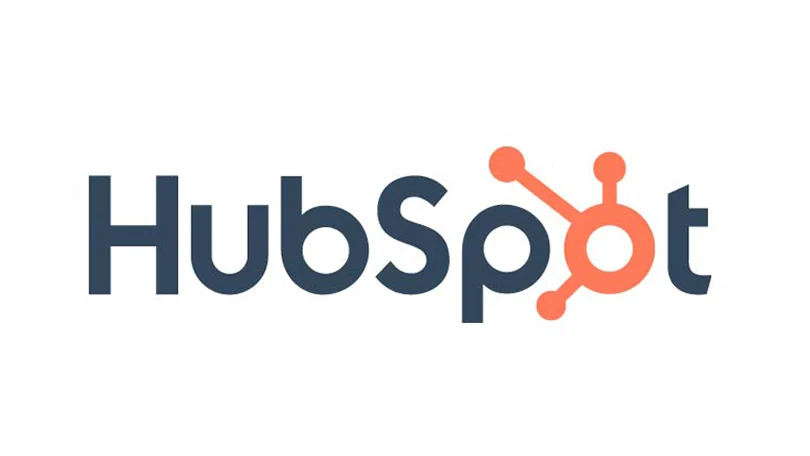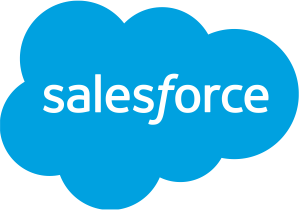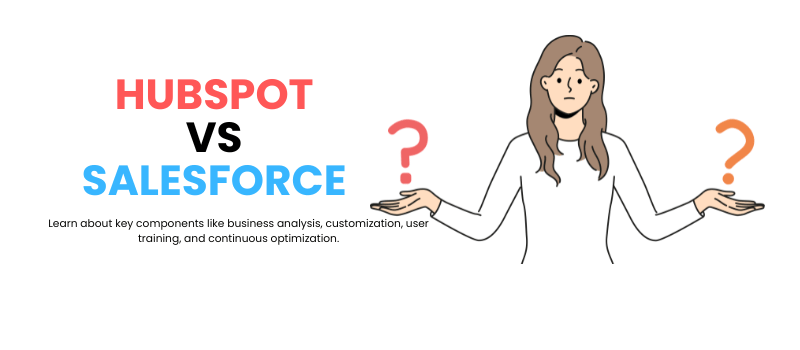HubSpot vs Salesforce
Discover key features, pricing models, and integration capabilities to make an informed decision.
In the realm of customer relationship management (CRM) software, HubSpot and Salesforce are two of the most prominent names. Both platforms offer robust solutions designed to help businesses manage their sales, marketing, and customer service efforts. However, choosing between HubSpot and Salesforce can be challenging due to their distinct features, pricing models, and user experiences. In this article, we will conduct an in-depth comparison of HubSpot vs Salesforce, highlighting their key differences, strengths, and weaknesses to help you make an informed decision.
HubSpot vs Salesforce: An Overview
A leading CRM and inbound marketing platform, HubSpot primarily targets small and medium-sized businesses (SMBs). HubSpot pioneered inbound marketing in 2006, which focuses on attracting, engaging, and delighting customers through valuable content and personalized experiences. HubSpot has the following key characteristics:

A comprehensive CRM platform, Salesforce offers businesses of all sizes and industries a broad range of features. As a family of CRM applications, Salesforce was founded in 1999 and has become synonymous with CRM, serving companies of all sizes. Here are some of the key features Salesforce has to offer:

HubSpot vs Salesforce: Key Features
Comparing HubSpot and Salesforce

Let’s compare HubSpot and Salesforce based on several criteria now that we understand their key features and functionalities:
HubSpot vs Salesforce
Target Audience:
HubSpot primarily targets SMBs and startups, offering user-friendly tools and a straightforward approach to inbound marketing. Salesforce serves businesses of all sizes and industries, providing highly customizable and scalable CRM solutions tailored to meet the specific needs of different organizations.
Features and Functionality:
HubSpot offers an all-in-one approach to inbound marketing, providing a wide range of features, including CRM, marketing automation, email marketing, social media management, content management, lead generation, and analytics. Salesforce offers a comprehensive suite of CRM solutions, including Sales Cloud, Service Cloud, Marketing Cloud, and Commerce Cloud, with extensive customization capabilities and support for complex sales and marketing operations.
Pricing:
Pricing is a significant consideration when choosing between HubSpot vs Salesforce. HubSpot offers a freemium model with limited features and tiered pricing based on the additional functionalities required. This makes it an attractive option for startups and growing businesses. Salesforce, on the other hand, offers a more traditional pricing model with various plans based on the number of users and features. While Salesforce may have a higher upfront cost, its extensive capabilities can provide substantial long-term value.
Integration and Ecosystem:
Sales and Marketing Approach:
Conclusion:
Choosing between HubSpot vs Salesforce depends on various factors, including business size, budget, and specific needs. HubSpot is ideal for businesses seeking an all-in-one, user-friendly solution with robust inbound marketing capabilities. Salesforce, with its extensive customization and advanced features, is better suited for larger enterprises with complex CRM requirements. Ultimately, the decision should be based on a thorough assessment of your business goals and CRM needs.
Summary:
This article provided a comprehensive comparison of HubSpot vs Salesforce, highlighting their key differences, features, pricing models, and integration capabilities. By understanding the strengths and weaknesses of each platform, businesses can make an informed decision on which CRM solution best aligns with their needs.
Author Spotlight

Chandan K. Sharma
An entrepreneur and author with a deep passion for technology, CRM, and digital marketing. Chandan is a versatile content creator and expert in CRM, sales automation, and marketing automation. He combines creativity with strategic thinking to deliver innovative, scalable solutions that help businesses streamline operations and drive growth.